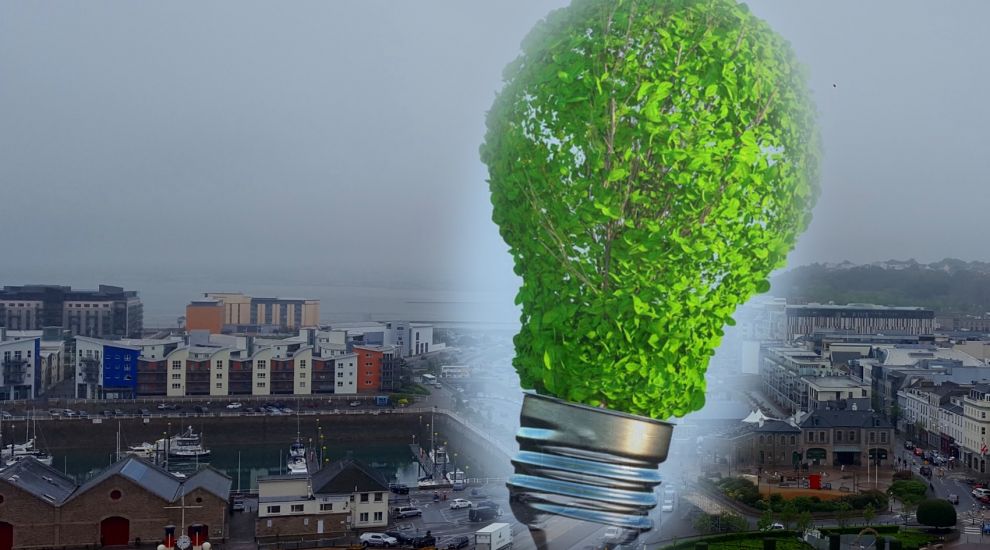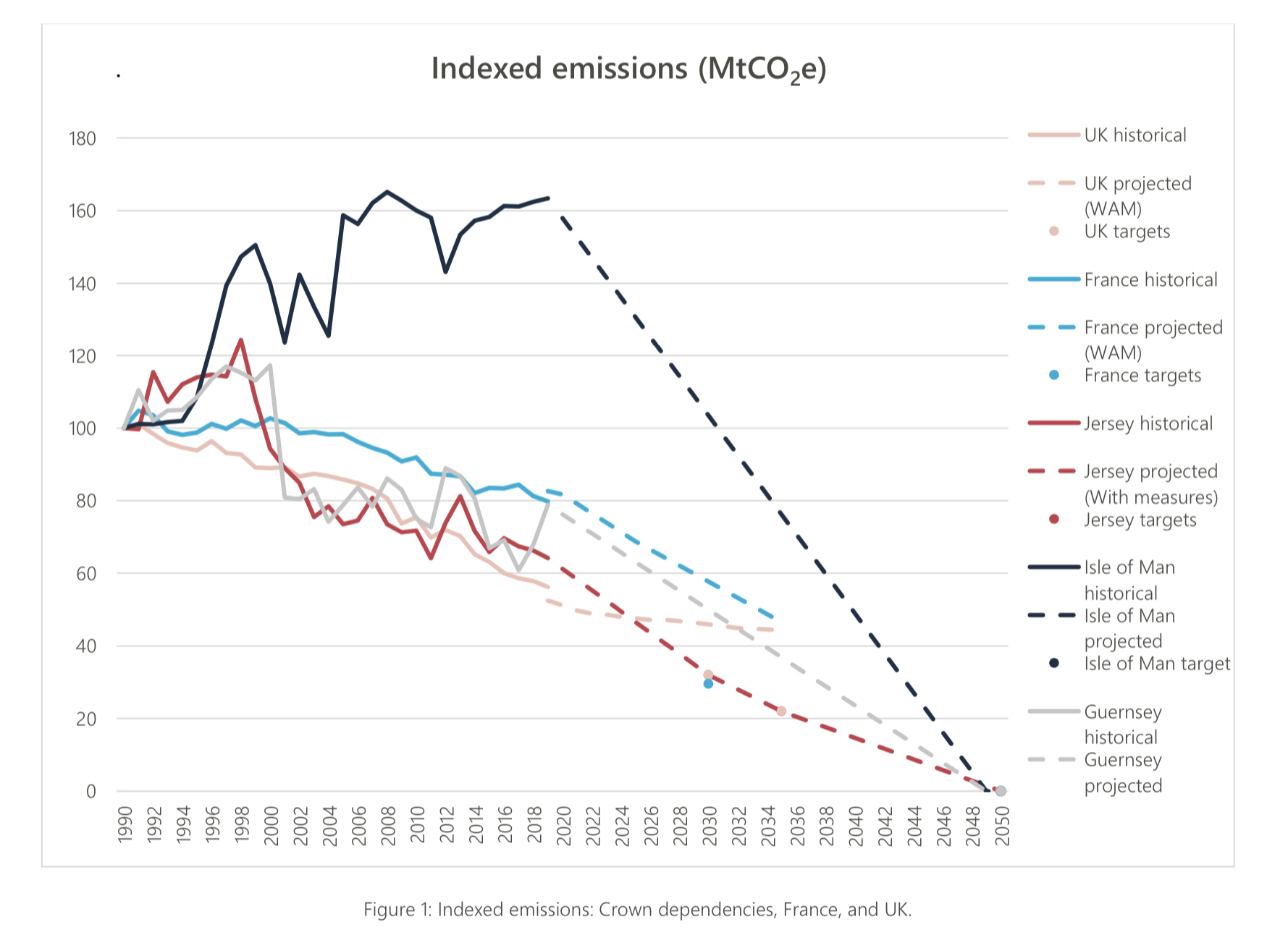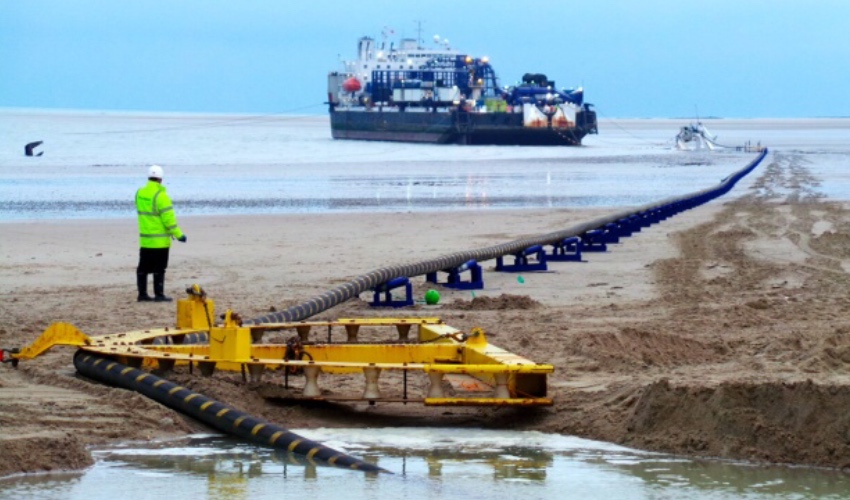


The Government is seeking to update Jersey's ‘carbon neutral by 2030’ target in favour of achieving net-zero emissions by 2050.
It argues that by aiming for the latter target – which was established at COP25 in Paris in 2015 – the island will have a more achievable, more practical and more recognised standard to aim for.
Changing the target set by the States Assembly in 2019 would also mean that Jersey would not have to offset its carbon emissions, which it would need to do to meet the 2030 aim. Offsetting would result in the island paying around £12m a year from 2030 to buy tradable carbon credits.
In effect, the island would be paying for someone else to remove carbon on its behalf.
However, the Government has not closed the door on the 2030 target.
Instead it has today published its ‘preferred strategy’ for reducing emissions, which will be followed by the end of the year with a ‘carbon neutral roadmap’, which will set out specific measures that the Government proposes to take to cut carbon emissions down to net-zero.
The Assembly will vote on this ‘roadmap’ next April, after islanders and backbenchers have been given the chance to have their say.

Pictured: How Jersey compares with other jurisdictions on decarbonisation. The island is ahead of the other Crown Dependencies but currently behind the UK.
Unlike in 2019 – when the Assembly selected 2030 as the aim for carbon neutrality without solid evidence – the Government now says global thinking has moved on significantly since then.
It argues that there is now an internationally recognised benchmark for reducing carbon: the science-based plans set out in the Paris Agreement on Climate Change, which countries are currently submitting progress reports on in Glasgow.
In broad terms, this means that, with Jersey already reducing its carbon emissions by a third between 1990 and 2000, the island would have to cut them by another third by 2030 and the final third by 2050.
Specifically, the preferred strategy is to reduce emissions by 68% compared to a 1990 baseline by 2030, and to reduce them to 78% from the baseline by 2035.
Recent figures show that Jersey has so far reduced emissions by 35.83% from its 1990 baseline.
Jersey cut its carbon footprint significantly in the 1990s, when Jersey Electricity started importing virtually all of the island’s energy from France, which was nuclear- and hydro-generated.

Pictured: Jersey’s efforts to decarbonise have been greatly helped by its decision to import electricity from France, although recent threats to cut the supply have highlighted the risks of that approach.
However, the island’s progress has slowed down in more recent years and it is now behind the UK in its rate of decarbonisation.
Although today’s preferred strategy is, in effect, a ‘plan before the plan’, it does accept most of the Citizens’ Assembly’s recommendations, including creating a new Minister for Energy and Climate Change in the next Council of Ministers.
Deputy Gregory Guida, who chaired the steering group that devised the strategy, said: “Steps to date have reduced on-island emissions by more than a third over the past three decades, but we now need to do much more to ensure we play our part in combatting global warming and the climate emergency.
“This preferred strategy gives us the foundations for the major new interventions we are planning to announce in December, backed by the new funding that we need to take strong action.”
The strategy proposes that the £23m in the Government’s Climate Emergency Fund is used between 2022 and 2026 on local initiatives to decarbonise the Island.
It says that once the money is used up, new funding sources will need to be found. It has already revealed that a new road-user charge, a “modest” tourist tax and new public and private parking levies are likely to feature to help meet the Government’s estimated £300m cost of achieving net-zero emissions.
Recently, Treasury Minister Susie Pinel told a Scrutiny Panel that she thought the ‘carbon neutral by 2030’ target would be “exceptionally difficult to achieve” - a view which seems to be endorsed by today’s announcement.
New strategy "dereliction of duty", says climate emergency politician
FOCUS: Which Climate Assembly recommendations is Gov backing?
Comments
Comments on this story express the views of the commentator only, not Bailiwick Publishing. We are unable to guarantee the accuracy of any of those comments.